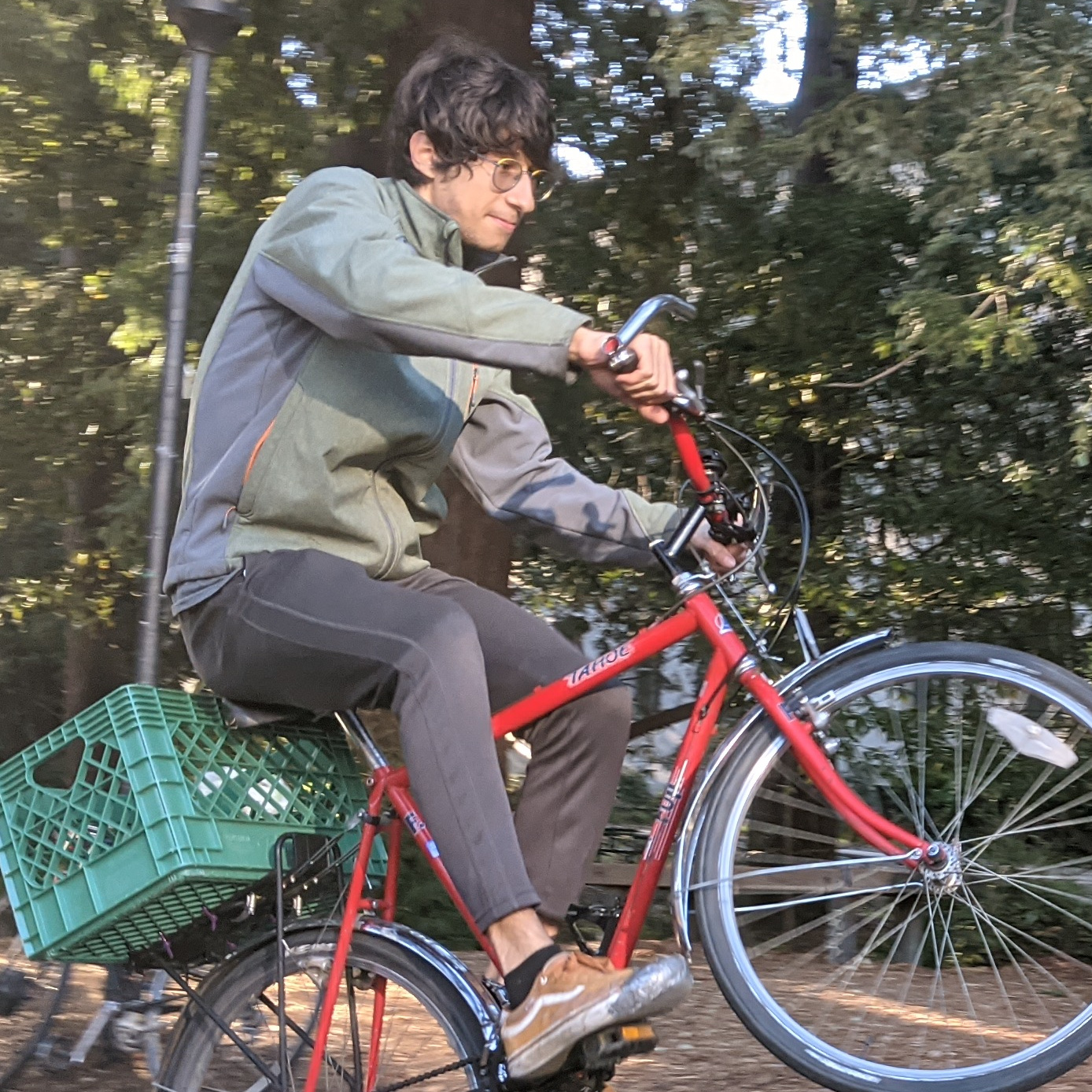According to social media, the average young person is a loser. And I’m not talking the kind of ne’er-do-well who gambles, drinks, and spends nights in jail, because our generation does less of all these things than our parents did. Instead, I worry that my own life will become a reflection of what I see online–living with my parents, working some menial service or office job, and doing absolutely nothing outside of work but looking at a screen. No, I’m not a loser yet. But I’ve begun to internalize loser content from social media, and it makes me feel aimless in a way I never used to. I suspect a lot of people my age feel the same.
Right now I’m a motivated college graduate with a degree in computer science and a love for long bike rides. Before writing this piece, I had to wake up at 4am to drive back from a 100-mile ride in the Sierra Nevada mountains. Later, I headed to the bike co-op to teach bike repair. What is the actual probability that I will be single and depressed, living in my parents’ spare bedroom, five years from now? Hopefully pretty low. But whenever I spend time on social media it looks just about inevitable. Generation Z’s culture involves self-deprecating malaise made worse by the fact that we habitually read, watch, and identify with losers. For some reason, a Reddit post titled I don’t know how I’m supposed to exist in this economic world draws me in more than Things to be optimistic about. It may be that overly positive social media posts seem fake or wishy-washy, but despairing ones must be real. The most heartbreaking thing to see is self-blame among young people who believe they are not good enough to deserve a meaningful life. Every time I click on a negative post, the algorithms feed me more of ‘em. I recently blocked Reddit from my computer, since it’s a social network that seems to give an outsized platform negativity and hate.
I’m sad that it’s come to this, since Reddit is such a rich source of information otherwise. I temporarily unblocked it to gather sources for this piece, then immediately reinstated the block. At this point in my life, I just no longer feel comfortable exposing myself to negativity that hits a little too close to home. I think a lot of us nearing the end of our college careers have this anxiety about what we will do to keep life interesting and worthwhile after we graduate. I certainly do. Opportunities for fun won’t fall in our laps anymore, and close friendships may die if we don’t work every day to maintain them. We must find a source of self-worth that is not school-related or self-destructive–so no all-nighters or endless alcoholic benders. Living through this search for meaning is not always fun.
We have also learned (again via social media) that it’s basically impossible to afford your own apartment in today’s economy. Around the time he turned 18 my father got a job loading pottery kilns and promptly moved to his own place. (Then he spent a year living out of a teepee in Northern California, but that’s a whole nother story.) 45 years later, my own job prospects are a whole lot more lucrative than his, and still I wonder if it might not be so bad to move back in with the family and save some money. I love my parents, my brother, and their little French Bulldog, so I can get the bare minimum of social connection for free rather than pay two thousand a month for a lonely studio apartment.
I don’t think there is any one cause for the situation we are in. Social media, helicopter parenting, and the insanity of the housing market are all relevant situations that uniquely affect young people. But it’s stupid to label an entire generation as lazy or entitled, when individuals are entirely a product of the people around them and the world they are raised in. If the prevailing mood on social media is lonely and bitter, then at least some perfectly good people will internalize the message and make losers of themselves. Up until now we have made much progress in talking about mental health and rejecting unhelpful opinions, so it seems counterproductive for young people to accept a ‘doomer’ mindset that says nothing will ever get better.
If we want to solve this doomer problem on a society-wide scale, we need to take serious action–a government ban of Reddit, YouTube, and Instagram would be nice. The feds have already made moves to ban TikTok, which is a great first step. To address those people who get us down offline, I recommend making Public Negativity a Class C misdemeanor offense. These policies will cure chronic doomscrolling and leave us with a happier, better-adjusted society while also violating numerous constitutional rights.
If this sounds too dystopian, the solution must be an individual one. Unfortunately, it’s even harder to ban social media from your own life than it is to pass a law banning it for everyone. The best trick I’ve found so far is to find small, everyday substitutes for doomscrolling. If I have time to watch YouTube shorts for an hour every morning, I certainly have time to put down my phone and have a cup of coffee outside. I’m here to live my own complicated, beautiful life, not listen to Redditors and YouTubers complain about theirs.
